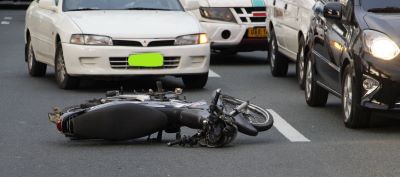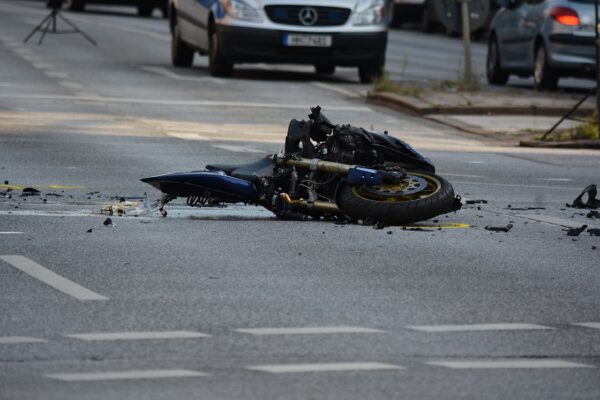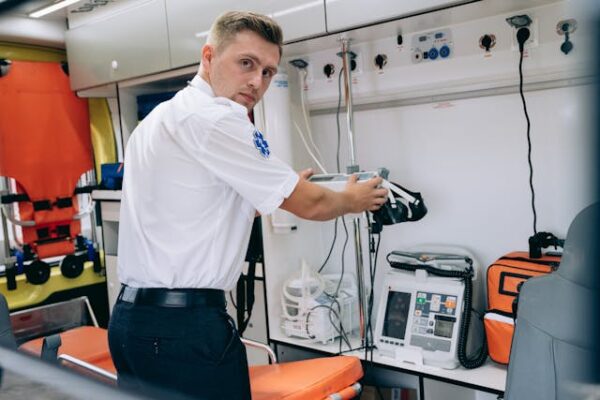A motorcycle accident can be a frightening and overwhelming experience. Whether you’ve sustained injuries or not, knowing how to respond in the immediate aftermath is crucial for both your safety and your legal rights. From assessing your well-being to gathering necessary information, every step following a crash can significantly impact your recovery and any potential legal claims. In this post, we’ll explore six key steps to follow if you ever are in a motorcycle accident.
Check for Injuries and Move to Safety
The first and most crucial step is to assess your physical condition. If you’re injured, remain calm and avoid moving unless necessary. Movement could worsen injuries, mainly if you’ve sustained trauma to your neck, spine, or head. If you can, check on others involved in the accident to determine if anyone else needs immediate medical attention.
If you’re able to move without causing harm to yourself or others, get to a safe location. Often, motorcycle accidents occur in busy traffic areas where staying on the road could lead to further danger. Try to move yourself and your bike out of traffic while waiting for emergency responders to arrive.
Contact a Lawyer for Legal Assistance
After prioritizing your health and safety, seeking legal guidance to protect your rights is essential. Consulting with a Motorcycle Accident Lawyer can help you navigate the complexities of insurance claims, medical expenses, and potential lawsuits. Since motorcycle accidents often result in severe injuries and significant financial losses, having a lawyer by your side ensures that you understand your options and can pursue fair compensation.
An experienced attorney can also help you deal with insurance companies, which may try to reduce your settlement. Legal support makes you more likely to receive compensation that covers medical bills, lost wages, and any other expenses resulting from the accident.
Call Emergency Services
Even if the accident seems minor, it’s critical to get the police and medical professionals on the scene. The police will create an official report that is invaluable for insurance claims and any potential legal action. In addition, a paramedic can evaluate any injuries, even ones that may not be immediately visible. Some injuries, like internal bleeding or concussions, may not be apparent right away but can become serious if left untreated.
Having a medical professional assess you at the scene also provides crucial documentation should you need to prove the extent of your injuries later. Ensure that detailed and honest information about the accident is provided to the police and the medical team.
Document the Accident Scene
If you’re physically able, start documenting the accident scene as soon as possible. Use your phone to take photos of everything’”the positions of the vehicles, any visible damage to your motorcycle, and the surrounding environment. It’s also helpful to take pictures of any injuries you may have sustained, as these can serve as vital evidence for insurance claims or legal action.
Gathering this evidence early is essential because the accident scene can change quickly. Roads may be cleared, and damaged vehicles might be towed away, leaving you with fewer opportunities to collect this critical information. Additionally, try to capture weather conditions, road hazards, and any relevant signs or signals that might have contributed to the accident.
Exchange Information with Other Parties
While waiting for emergency services, exchange information with the other driver or drivers involved. Be sure to get their names, phone numbers, driver’s license numbers, insurance information, and the license plate numbers of their vehicles. If witnesses are present, try to get their contact information as well. Witnesses can provide valuable third-party accounts of what happened, which can help clarify the sequence of events.
Avoid arguing or admitting fault while talking to the other parties involved. The adrenaline and stress from the accident can affect your judgment, so it’s best to stick to exchanging the necessary information and leave detailed discussions for later.
Seek Medical Attention, Even If You Feel Fine
Many people walk away from a motorcycle accident feeling lucky to be alive and, sometimes, relatively unhurt. However, injuries like whiplash, internal bleeding, and even fractures may not show symptoms right away. Seeking medical attention as soon as possible after an accident is critical, even if you don’t feel any immediate pain.
A thorough medical evaluation can identify any injuries you might not know. Additionally, a professional record of your condition after the accident is key when dealing with insurance claims or if legal action is necessary. Your health should always be your top priority, and prompt medical care ensures you aren’t overlooking hidden injuries.
Experiencing a motorcycle accident can be traumatic and life-changing, but knowing how to respond in the aftermath can make a significant difference in your recovery. Always prioritize your health, gather as much evidence as possible, and seek legal advice to protect your rights. By following these steps, you’ll be better equipped to handle the challenges that arise after an accident, ensuring the best possible outcome for your physical and financial well-being.



